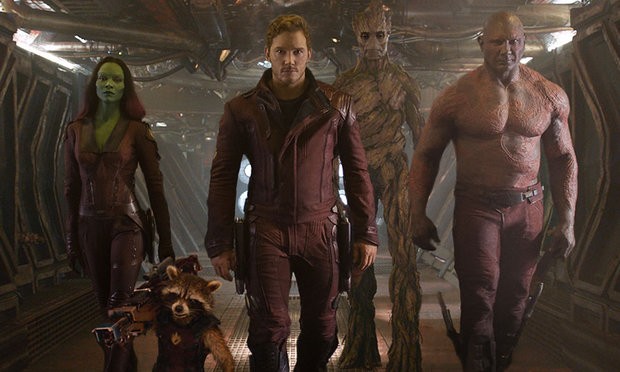Here come the expectations. After decades as a college football afterthought, the University of Memphis Tigers open their 2018 season as front-runners. The program may have lost an All-American receiver (Anthony Miller is now the property of the Chicago Bears) and a 4,000-yard passer (quarterback Riley Ferguson), but these are not your older brother’s Memphis Tigers. Having finished in the nation’s Top 25 twice since the 2014 season, the U of M aims for a second straight West Division title in the American Athletic Conference . . . and that’s for starters. A conference title and berth in a New Year’s Six bowl game are on the table for discussion.
Third-year coach Mike Norvell wouldn’t have it any other way.
“There are going to be a lot of eyes watching everything we do,” says Norvell, winner of 18 games since his arrival before the 2016 season. “The responsibility is that much greater. It’s a compliment to our program, and a compliment to our personnel. And it’s a great example for future Tigers. People recognize the progression that’s occurred here. But we haven’t done anything yet. We have to put in the work that’s necessary. You have to remember some games where we came up short, and the little details that will allow us to continue the push to be the best version of ourselves.”
 Larry Kuzniewski
Larry Kuzniewski
Tony Pollard
There are two glaring absences from the Tigers’ offensive depth chart as the season gets underway. Gone are Anthony Miller (only the fourth Tiger to earn first-team All-America recognition from the Associated Press) and Ferguson (the first Tiger to pass for more than 4,000 yards in a single season). Don’t expect any two individuals to approximate Miller’s and Ferguson’s production of a year ago. Instead, look for a distribution of responsibility among a few returning players, some of them with their own All-America aspirations. Starting with Tony Pollard.
The Memphis program recently went 19 seasons (1997-2015) without returning a single kickoff for a touchdown. Pollard — the pride of Melrose High School — returned two as a redshirt-freshman in 2016 (the first Tiger ever to score on a pair of kickoffs in a single season), then returned four last season, putting him on the cusp of breaking the national career record (seven, held by three players) and with two seasons yet to play. Pollard averaged an astounding 40.0 yards on his 22 kickoff returns and accumulated 1,647 all-purpose yards (rushing, receiving, and kick returns) on his way to a second AAC Special Teams Player of the Year award.
“Tony has made a dynamic impact on our return game,” says Norvell. “His role in the offense expanded last year, and it’s been great to see his fundamental development. He’s such a versatile player. And he’s become a master at technique.”
Pollard preparing to return a kickoff will be a considerable silver lining after a Tiger opponent scores this fall. And having already returned three kickoffs 100 yards, Pollard considers every kickoff a few quick strides from six points.
“Once I see I’m going to catch [a kickoff], I automatically think it’s going to the house,” says Pollard. “That’s how our kickoff unit thinks. It’s having faith in everyone up front, that they’ll hold their blocks long enough for you to get through. And they have trust in me to hit the hole [they create], and not just bounce outside every time. There’s a lot to it — a lot of coaching — behind the scenes.”
 Erik Williams
Erik Williams
Sophomore T.J. Carter
Pollard would like to surpass 2,000 all-purpose yards this fall and sees no reason the new fair-catch rule for kickoffs will slow him down. “There may be more pooch kicks this year,” says Pollard, “but our coach is a genius, so he’ll find some way around it.”
“It’s hard to take momentum away from another team,” says senior center Drew Kyser. “And that’s what Tony does; he changes the game.”
Perhaps the only teammate who might challenge Pollard in a footrace is junior tailback Darrell Henderson. The native of Batesville, Mississippi, averaged a staggering 8.9 yards per carry last season on his way to 1,154 yards rushing and 11 touchdowns (two through the air). He’s a preseason all-conference selection and will play a critical role in support of a rookie quarterback. Junior Patrick Taylor (866 yards rushing and 14 touchdowns in 2017) will get his share of carries as well.
About that rookie quarterback. The Tigers opened preseason camp with an open competition between graduate-transfer Brady White and sophomore David Moore (Ferguson’s backup a year ago). But on August 21st, Moore announced he intends to transfer, essentially handing the gig to White.
Originally recruited by Norvell to play at Arizona State (where Norvell was then an assistant coach), White hasn’t thrown a pass since suffering a foot injury three games into his 2016 season with the Sun Devils. He’s a pro-style passer, once ranked 54th in the country as a high school senior by Rivals.com. With Moore removed from the depth chart, freshmen Brady McBride and Connor Adair will vie for backup duties.
 Larry Kuzniewski
Larry Kuzniewski
Henderson
In Miller’s absence, White’s primary targets will be sophomore Damonte Coxie (21 catches and a 15.4-yard average last season) and a pair of tight ends with all-conference hopes: juniors Joey Magnifico and Sean Dykes. The two combined for 36 catches and six touchdowns last season.
The Tiger offense will have the luxury of a veteran line, one that features three of the team’s eight seniors: Kyser (38 career starts), Trevon Tate (34 starts), and Roger Joseph. While only a junior, Dustin Woodard has 24 starts under his belt and will help in blasting holes for Tiger ball-carriers. “You have to have five guys who play as one unit,” stresses Norvell. “I like the leadership we have; it can be a strength. If they play to the level they’re capable of, it will make everyone around them better.”
The Tigers allowed 21 sacks in 2017, a low number — good for 37th in the country — but a figure that could be lowered this fall with a larger emphasis on the running game. (Memphis threw the ball 488 times last season and ran the ball on 453 plays.)
Kyser cuts to the chase when asked about his team’s status as favorites. He’s enjoyed 27 wins in three years and sees no reason the program’s run might be slowed. “Our goal is to be undefeated at the end of the year and national champions,” he says. “[Our opponents] know we’re coming. We’re gonna keep fighting till the end.” Kyser intends to be a more vocal leader, every offensive play starting with the ball in his hands. “I wanted to be a quarterback, but God blessed me with 300 pounds. I take pride in being the quarterback of the offensive line. The coaches trust me to make calls at the line of scrimmage.”
The Tigers averaged 45.5 points per game last year, second in the country only to AAC champ UCF. (Memphis hosts the Knights on October 13th.) But the Tiger defense allowed 32.5 points per game, 102nd among 130 FBS teams. Presuming a drop, at least slightly, from last year’s offensive production, the Tigers will need to shave a few points off their average allowed to harbor thoughts of another 10-win season.
 Larry Kuzniewski
Larry Kuzniewski
Coach Mike Norvell
“Last year was tough [on our defense],” says Norvell. “We had six starters who went down. We had to force some young guys into action, maybe before they were truly ready. We knew we had a top-notch offense, and we needed to get them the ball.” The 2017 Tigers finished third in the country in turnover margin, gaining 31 (via interception or fumble recovery) while losing only 16.
The 2018 defense could be led from the secondary, as sophomore cornerback T.J. Carter played a pivotal role a year ago with five interceptions on his way to Freshman All-America recognition and the AAC’s Rookie of the Year award. “I’m ready to become a leader,” says Carter. “I’ve seen what it takes to get to the [AAC] championship game, and it’s not easy. I wasn’t as vocal last year, but I’m learning the whole defense. With a year of experience, even in the spring, I’m more comfortable with the play calls. You don’t have to think as much, especially on the back end.” Carter touts the growth of a classmate, La’Andre Thomas, and says Thomas could be a new force in the Tiger secondary, likely from the safety position.
Senior linebacker Curtis Akins led the 2017 Tigers with 88 tackles (60 of them solo) and rejects the idea that Genard Avery’s departure (he was drafted by the Cleveland Browns) will leave a void. “If they don’t score, they can’t win,” says Akins, a mantra he intends to impart to his teammates all season. “Since I got here, the offense has carried us. This is my last year; I want the defense to lead the pack. I made the checks and calls last year, so I’m comfortable in the role.”
Akins credits strength coach Josh Storms with helping him add 20 pounds over the off-season and claims he’s actually faster than before he added the muscle. With sophomore Tim Hart and junior Austin Hall back, and with the emergence of sophomore J.J. Russell, look for the Memphis linebackers to decide a game or two.
Norvell signed a five-year contract extension last December that will pay him $13 million through the 2022 season. (Resolution: Let’s wait until at least bowl season to start the hand-wringing over whether a Power Five program will convince Norvell to shred that contract.) Still a few weeks shy of his 37th birthday, the coach is genuinely excited about prospects for the season, and embraces the unknown.
“There are question marks,” he acknowledges. “Who’s going to be the go-to when times are tough? Who will step up and perform at an elite level? I love competition. There are guys who started for our football team last year who are going to have a tough time keeping their position moving forward. Because we’ve recruited at a high level. And players have worked relentlessly to put themselves in a good position.
“We’re a bigger football team,” emphasizes Norvell. “We’re a faster football team. The weight-room numbers, the strength and development have been incredible. Our staff has come together: new faces, new ideas, new energy. Everybody associated with our program is fired up. We know there’s a lot of work in front of us. Challenges will arise. But I know this team is ready.”
“As a program,” adds Pollard, “we have to stay focused on our task, not look too far down the line.” Preseason rankings — and preseason All-Americans — are long forgotten come December.
After four straight winning seasons and a pair of Top 25 finishes, can Memphis be classified as a football school? A football town? Mike Norvell’s a believer: “When you walk down the street and you see people wearing that Memphis logo, yelling ‘Go Tigers!’ . . . We know the importance. It puts us on a national scale. We represent the entire community in how we play. When people ask me to describe Memphis, I say it’s culture and community. Starting in the spring, we have a festival every weekend. What’s exciting for me is that we now get to have seven festivals [at the Liberty Bowl] in the fall. I take pride in that.”











 JB
JB  JB
JB  JB
JB  Playhouse on the Square
Playhouse on the Square  Carla McDonald
Carla McDonald  Christopher Halloran | Dreamstime.com
Christopher Halloran | Dreamstime.com  Larry Kuzniewski
Larry Kuzniewski  Erik Williams
Erik Williams  Larry Kuzniewski
Larry Kuzniewski  Larry Kuzniewski
Larry Kuzniewski 
 White House
White House 